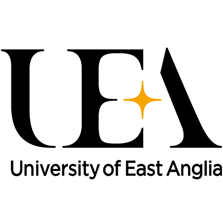
Tips on implementing a more agile and responsive assessment extensions process
You may also like
University of East Anglia’s (UEA) introduction of a new policy on assessment extensions, which took effect at the start of the 2023/24 academic year, was prompted by several factors:
- The impact of the rising cost of living on university students
- The lack of clarity on when evidence was required (post-pandemic respiratory illness, such as Covid, or bereavement did not require proof, but broken bones did)
- The impact on academics’ workloads (the absence of defined “final” deadlines resulted in unpredictable and scattered marking which posed time management challenges)
- The impact on the workloads of professional services staff who were dealing with increasing numbers of student requests year upon year. This caused delays in responding to already anxious students, potentially exacerbating the very circumstances for which they were seeking extensions in the first place.
Our new approach not only responded to a business-critical need but also encompassed several aims including:
- To simplify the process
- To improve consistency in the granting of extensions
- To reduce workloads
- To create a process that supports our students and takes their changing demographics and needs into consideration.
Recent research conducted at our institution evidences the financial struggles some students face during their time at university. Among other things, inclusive practice and flexible teaching and assessment arrangements are particularly important for the increasing number of students who now work during their studies. While interventions such as enhanced mental health support and financial aid provision tackle the symptoms of this crisis, we take pride in the fact that our approach takes an important step towards reshaping our curriculum and making adjustments for the changing needs of our student population.
Our new approach
The revised approach is two-fold:
- We’ve extended the requirement for self-certification to all items (excluding event-based – scheduled assessments such as exams, oral presentations and vivas – or group work assessments) for seven calendar days
- The evidence-based extensions have been limited to 21 calendar days (which, combined, results in a maximum of 28 calendar days) after which students in exceptional circumstances requiring a longer extension will be automatically referred to delayed assessment.
This new approach is underpinned by an improved, more accessible matrix outlining acceptable evidence combined with a shift in the timeframes towards “calendar days” and away from “working days” to better suit our students. It should also be noted that we already had a self-certification process in place, but our students could only use this twice in the academic year. Our new approach permits students to use the self-certification process for all items of non-event-based work.
Engaging collaborators
Before implementation, we consulted widely with collaborators from across the institution including academic and professional services staff. We mapped out workflows and critically tested the process using example scenarios of how students might engage with the new approach. We adjusted initial plans to respond to possible concerns about student well-being and/or disengagement. Implementing the new workflow continues to be an iterative process.
- Resource collection: AI and assessment in higher education
- Equity, agency and transparency: making assessment work better for students and academics
- What does good assessment look like online?
Impact
The early indicators are positive as indicated by the data in the table below. We have seen an expected rise in the number of self-certifications, but a decrease in the number of evidence-based extension requests.
Presenting an evidence-based policy change supported by internal data and external research has begun a real culture shift among academic staff in particular. We have received feedback from students telling us how this policy change has made the process more inclusive and supportive.
Below is comparative data on exceptional circumstances from three academic years (from the start of the academic year to the Wednesday of week four of the Spring Semester)
| 2021/2 | 2022/3 | 2023/4 | ||||
| 27/09/21 - 09/02/22 | 30/09/22-22/02/23 | 29/09/23-21/02/24 | ||||
| Self-Certification | 6451 | 51.84% | 5833 | 50.41% | 9986 | 79.62% |
| RA Self-Cert | n/a | n/a | 1267 | 10.95% | n/a | n/a |
| Evidenced Extension | 4407 | 35.41% | 2889 | 24.97% | 1658 | 13.22% |
| Deferred Event | 755 | 6.07% | 720 | 6.22% | 401 | 3.20% |
| End of Year Request | 508 | 4.08% | 560 | 4.84% | 247 | 1.97% |
| Repeat/ Interruption | 324 | 2.60% | 302 | 2.61% | 250 | 1.99% |
Barriers to implementation
While this has been a necessary and positive development at the institutional level, the new process demanded a significant cultural shift and took time to embed across groups within the university community: students, academic staff, professional services staff including those involved in the learning and teaching and student services and the medical centre.
Tips for success
- Decide what type of assessment this will apply to
- Decide if this will apply across all of your institutional programmes
- Document your “as is” and “to be” workflows
- Engage a wide range of collaborators to test the “to be” process using real examples
- Discuss what system changes will be required and build them into your timeline
- Ensure that the new process and the rationale for it have gone through the relevant governance structure
- Use as many communication channels as possible and keep repeating the message at any given opportunity
- Be prepared to iterate the new workflow if required
- Ensure you have the data to be able to assess the impact of your intervention.
Eloise Ellis is associate pro vice-chancellor of education and curriculum; Kay Yeoman is associate pro vice-chancellor of learning and teaching enhancement; Karin Goodby is head of learning & teaching services; Fabio Aricò is the Director of CHERPPS at the University of East Anglia.
If you would like advice and insight from academics and university staff delivered direct to your inbox each week, sign up for the Campus newsletter.




